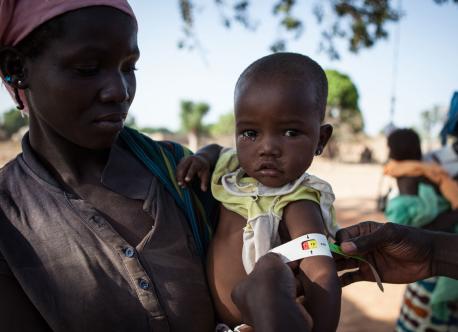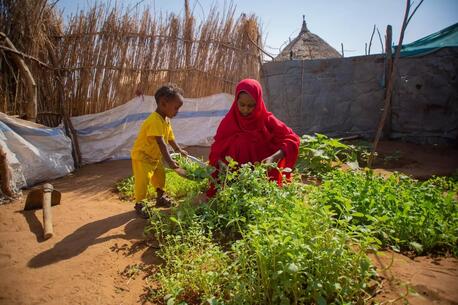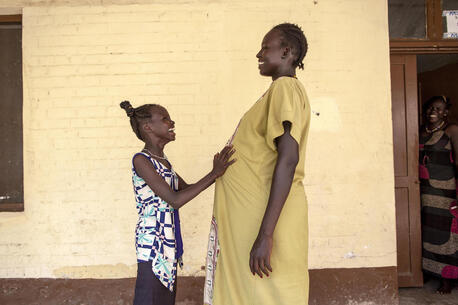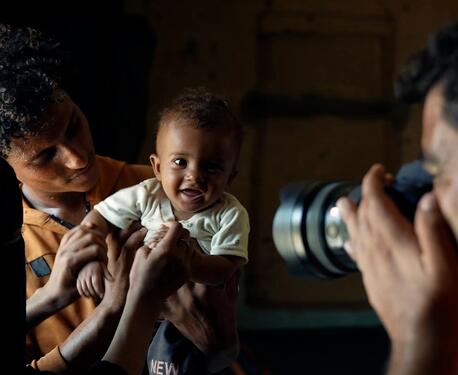
Helping the children of Mali
This week America celebrates its independence. But many people in the world do not even enjoy the most basic freedoms, like having a place to live, food to eat, clean water to drink and access to healthcare. If you’ve been visiting our website, you know that the Sahel region in Africa is a place where even the most basic needs for survival are not being met. UNICEF has been tracking the situation in Mali and the rest of the Sahel region and is doing everything it can to save the children and families of Mali. Here is some of the work that UNICEF has been doing.
The Sahel region in Africa is a place where even the most basic needs for survival are not being met. Within the region, Mali has been especially hard-hit, facing not only a severe food crisis, but suffering from internal conflict as well.
At a health center in Mali, Kadia, ten months old, eats ready-to-eat therapeutic food. © UNICEF/MLIA2012-00018/Harandane Dicko
Mali has become a divided country with its northern region occupied by two rebel forces, and this conflict has put a severe strain on the people living in the region. It has limited the access to water and sanitation, increased the risk of disease, threatened children's safety, and crippled the education system. More than 330,000 people have left their homes, many of them children. In addition to suffering from an ongoing food crisis due to drought and rising food prices, Mali is also now at the height of its lean season. 385,000 children are at risk of acute malnutrition, and out of these, 175,000 may need lifesaving treatment. UNICEF has been tracking the situation in Mali and the rest of the Sahel region and is doing everything it can to save the children and families of Mali. Here is some of the work that UNICEF has been doing:
- UNICEF has sent 13,848 cartons of ready to use therapeutic food to the country, and over 71,000 children have been treated for malnutrition.
- UNICEF is helping to reopen more than 60% of the country’s health facilities, and is training health personnel.
- With its partners, UNCEF is vaccinating 5.78 million children under the age of five against polio, as well as administering vitamin A and de-worming children.
- UNICEF is working to prevent cholera by delivering WASH kits—which include water treatment tablets, soap, jerry cans, cooking pots, blankets and tarps—to internally displaced people. UNICEF is also providing latrines and hygiene kits to school. The WASH program is especially underfunded and in need of support from both partners and donors.
- UNICEF is helping to keep children in school and keep them safe.
As we celebrate our independence, now may be a good time to reflect on all those who don’t enjoy the same freedoms that we do. If you would like to donate to help the children of the Sahel, please visit our donation page.



